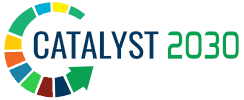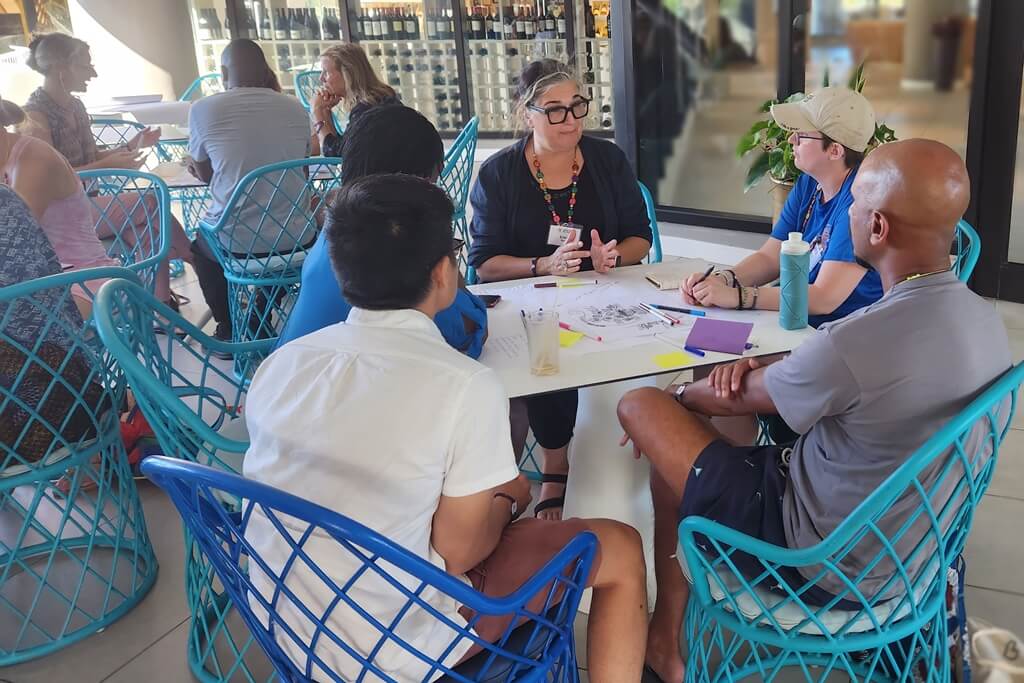
How to Make Networks Less Elitist
The idea for Catalyst Co-Labs came together when, following the initial meeting with Kristin Peterson and Winthrop Carty, Therese Blixen realised how many people across the world there must be, just like her, who fit in perfectly at high level gatherings such as the one where the three had met at Althorp House, but are not usually able to attend. She thought, what a source of untapped talent and an amazing possibility the budding Catalyst 2030 network would be to connect them to problem solve and move forward faster, together. This would be real democratisation.
On a long walk, Kristin and Therese came up with “Co-Labs” as a way to leverage the amazing Catalyst 2030 network. It could bring in social entrepreneurs who weren’t yet part of global networks. Why not engage social entrepreneurs and other changemakers to solve their shared challenges at scale?
When Winthrop got wind of this idea, he asked to join the effort. Several months later the three of them began applying co-design principles to the concept, inviting experts in design-thinking, as well as funders and fellow Catalyst members, to help improve the Co-Lab design. Having gone through a full human-centred design process and several prototypes, the team launched Catalyst Co-Labs.
As a demonstration of the circle of networking that Catalyst 2030 represents, the three Co-Labs founders were originally brought together by Kristine Pearson, Head of LESA Communications and Lifeline Energy – and also a founder member. A friend of all three, Kristine encouraged them to come to the initial in-person meeting.
Catalyst Co-Labs in a Nutshell
A Catalyst Co-Lab begins by finding a social entrepreneur who has a clearly defined and potentially solvable problem. They then become the host while the Co-Labs team members serve as curators and moderators.
To ensure that the participants in the session are as diverse as possible, potential collaborators are recruited from among the entire Catalyst 2030 network (and beyond) to apply to join. All applicants are reviewed by the host and moderators. The selected participants are those who share, or who can offer, solutions to the challenge. The final group is no more than 30 people.
Co-Labs can be exclusively online, or in-person, or hybrid depending on the context and needs of the hosts and their sponsors.
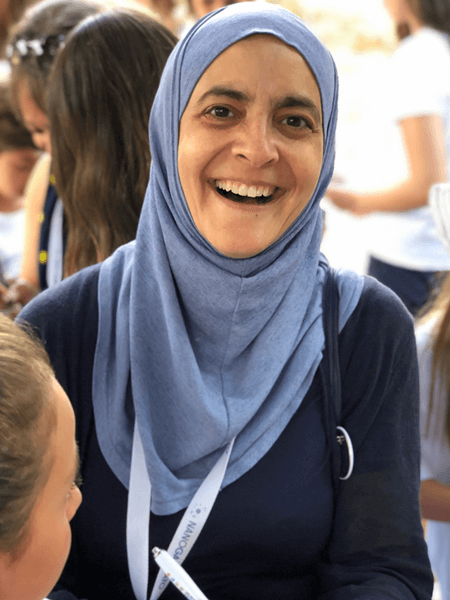
Online Co-Labs
The first Co-Lab took place online in January 2021, featuring Catalyst 2030 member Rana Dajani, founder of We Love Reading in Jordan. As the Co-Lab’s host, Rana focused on helping better connect We Love Reading’s 3,000 ambassadors worldwide through a peer-to-peer platform. The Co-lab Team curated a group of tech, educational design and strategy experts drawn from the Catalyst 2030 network and beyond, who came together to help Rana and her organisation with her challenge.
The ideas and collaborations that emerged from this Co-Lab contributed to We Love Reading receiving support from UNESCO and to attracting pro bono tech development assistance to create a platform.
Another online Co-Lab was “hosted” by Catalyst member Poonam Bir Kasturi, founder of India’s Daily Dump. Poonam had launched Desh Ka Bag, an initiative to design a circular, traceable, scalable system of recycled shopping bags to reduce plastic bag waste in India, beginning with street vendors.
For Poonam’s Co-Lab, the team brought together 26 experts, ranging from the head of India’s Street Vendor Association to experts in fintech and marketing from across ten countries. Together they developed incentives and technologies for street vendors and others in the supply chain to replace plastic with recycled bags.
The project has now gone on to collaborate with several of the Co-Lab participants. According to Poonam this was a game changer, “Our work needed this diversity of expertise that we were able to tap into, which really is the strength of the Co-Lab connections”.
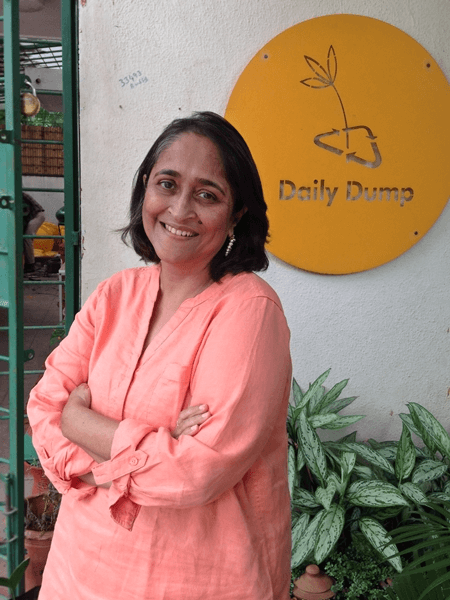
founder of India’s Daily Dump
In-Person at Opportunity Collaboration in the Dominican Republic
Co-Labs was invited to support The Opportunity Collaboration (OC) “un-conference” held in September, 2022 in the Dominican Republic. OC is a global network of leaders dedicated to building sustainable solutions to poverty and injustice. OC was eager to catalyse deeper dialogues, relationships and interorganisational learning and collaborations.
The Co-Labs team created and delivered two Co-Labs for OC’s delegates. Not only were these the first in-person Co-Labs, but the team also experimented with creating a team of hosts (instead of just one social entrepreneur host).
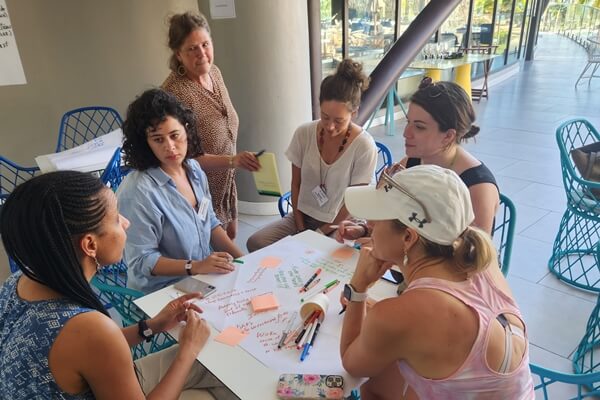
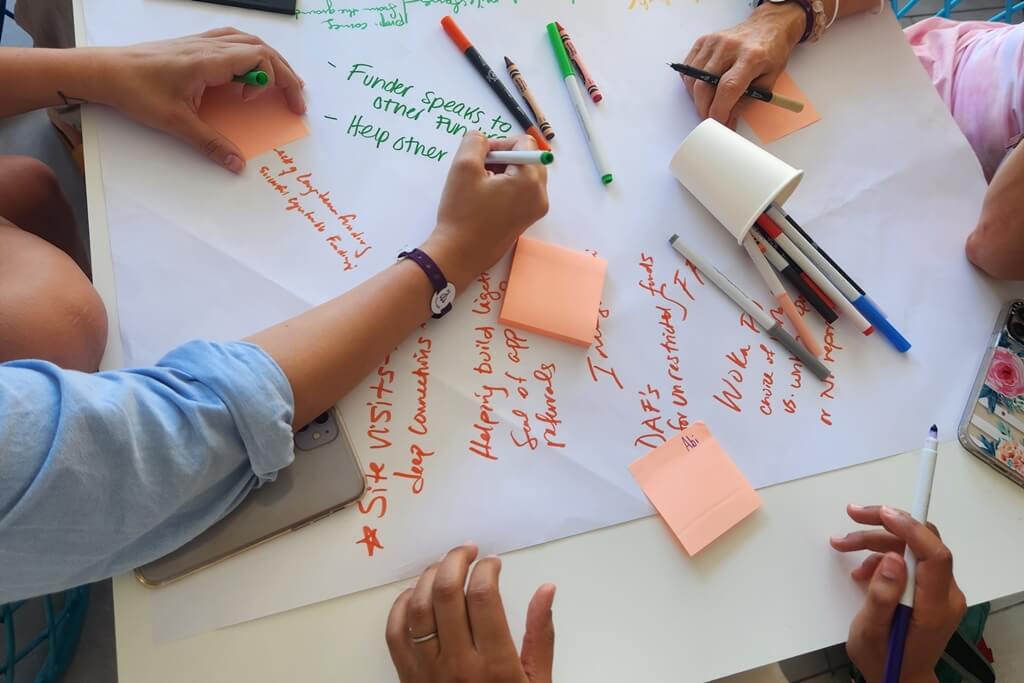
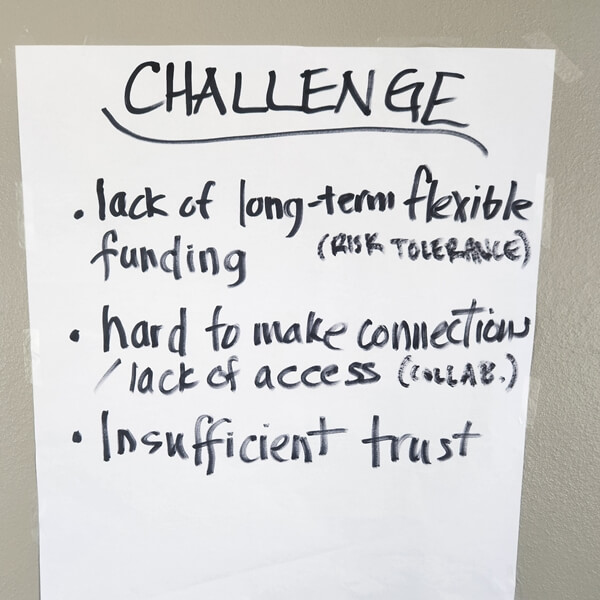
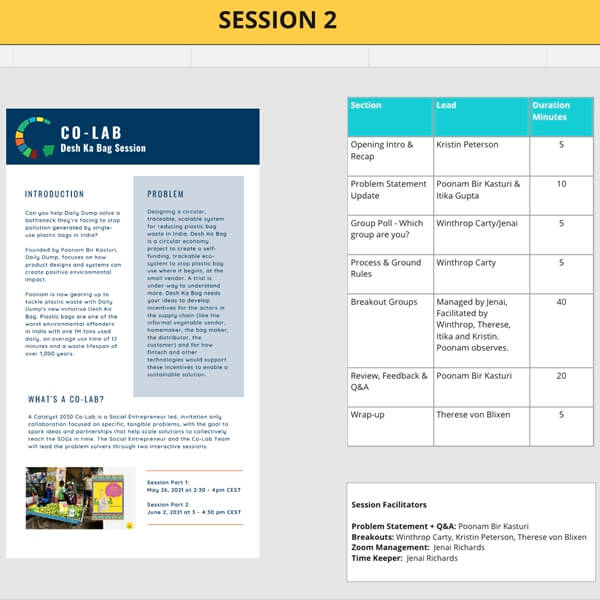
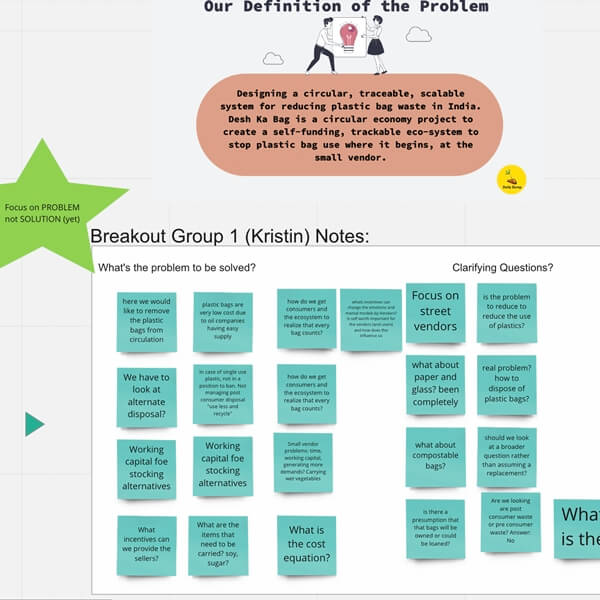
One Co-Lab at OC centered on ways to address power dynamics between funders and local leaders. In this Co-Lab, the team experimented with using three hosts, each with different institutional roles: a funder, an intermediary, and a grassroots NGO. They were, respectively, Emily Mochizuki Lutyens of Common Future, Evan Cauble-Johnson of Street Business School and Samson Wambuzi from Uganda’s Yiya Solutions. The two Co-Lab sessions resulted in a commitment to create and promote a list of best practices for funder-NGO relationships.
COVID Ate My Supply Chain: Are You Ready for the Next Shock?
Another Co-Lab at OC was “hosted” by Adjo Dede Asare, CEO of Alfie Designs Ltd, a Ghanaian ethical supply fashion manufacturer of fashion. This Co-Lab was geared towards the challenges ethical supply chains face during global crises like COVID and resulted in a commitment by the participants to map the investment ecosystem across the supply chain in order to raise funder awareness and reduce risk.
Going Hybrid in Kenya
The next Co-Lab will take place in late February, 2023, in Nairobi Kenya, in collaboration with the African Chapter of Catalyst 2030. Here the Co-Labs will engage the global Catalyst 2030 network, both online and in-person, to support local Catalyst social entrepreneurs.
Looking Ahead
The Co-Labs Team is in discussions with a growing number of funders, impact networks, awards programmes and convenings, to deliver Co-Labs that bridge the Catalyst 2030 network with other communities, in service of becoming more inclusive and to scale impact towards achieving the SDGs.
Grassroots changemakers – especially those in marginalised communities – face barriers to finding and getting heard from potential partners and additional funders. Most funders recognise this problem and are seeking solutions to it. The Co-Lab co-creation model helps expand their grantees’ networks and accelerate their impact.
Many award programmes are seeking to move beyond the “hero” entrepreneur or singular “solution” to systemic problems toward more inclusive and collaborative approaches to innovation. Catalyst Co-Labs offers awardees the opportunity to join up with their fellow winners to collaborate with peers around the work, to share and improve upon their work more collectively.
Increasingly, impact networks like Catalyst 2030 are being asked by their members and their boards, what can they do to drive real, immediate action? Catalyst Co-Labs offers an immediate, practical opportunity to widen reach and drive collaborations within and across regional and global networks.
Co-Labs can also help organisers of convenings, like Opportunity Collaboration, become more impactful by inviting attendees to go from panels and networking cocktails to hands-on co-creation and action.
If you are interested in sponsoring or hosting Catalyst Co-Labs, get in touch with the team at info@catalyst-colabs.org.
